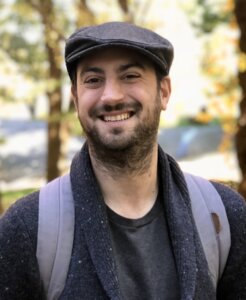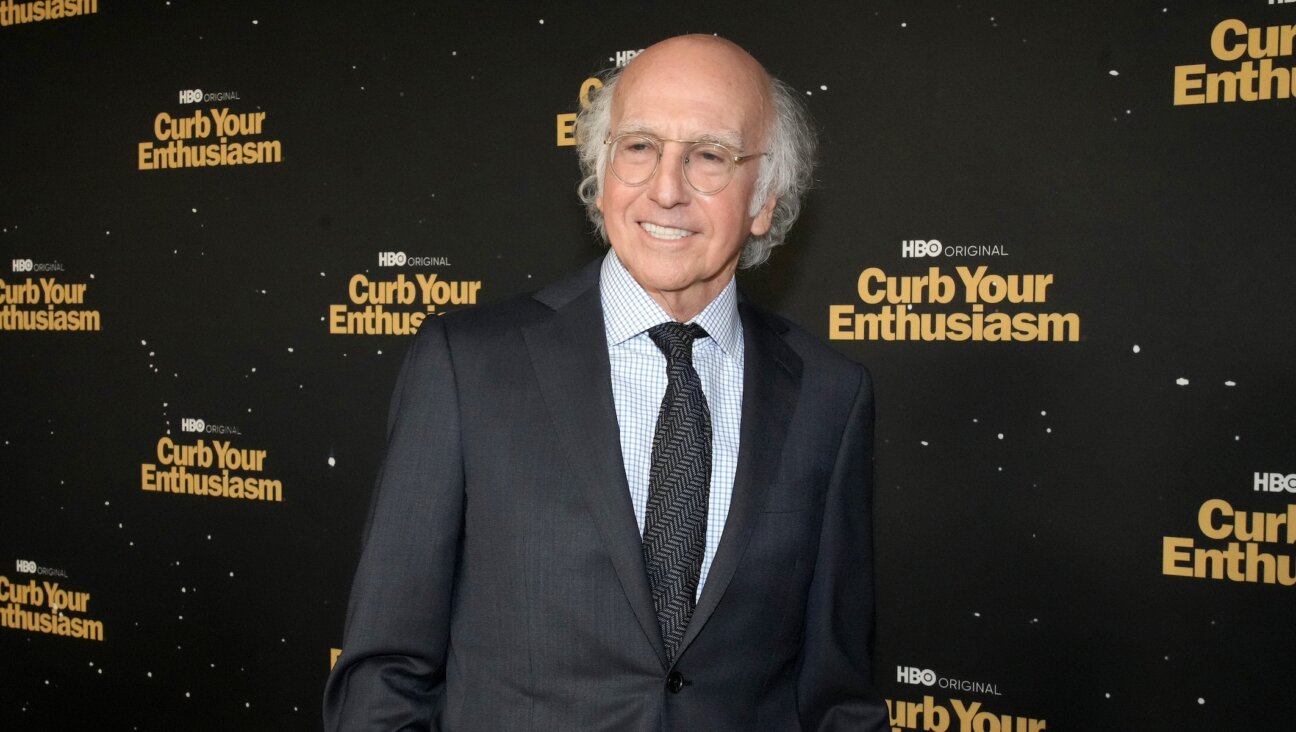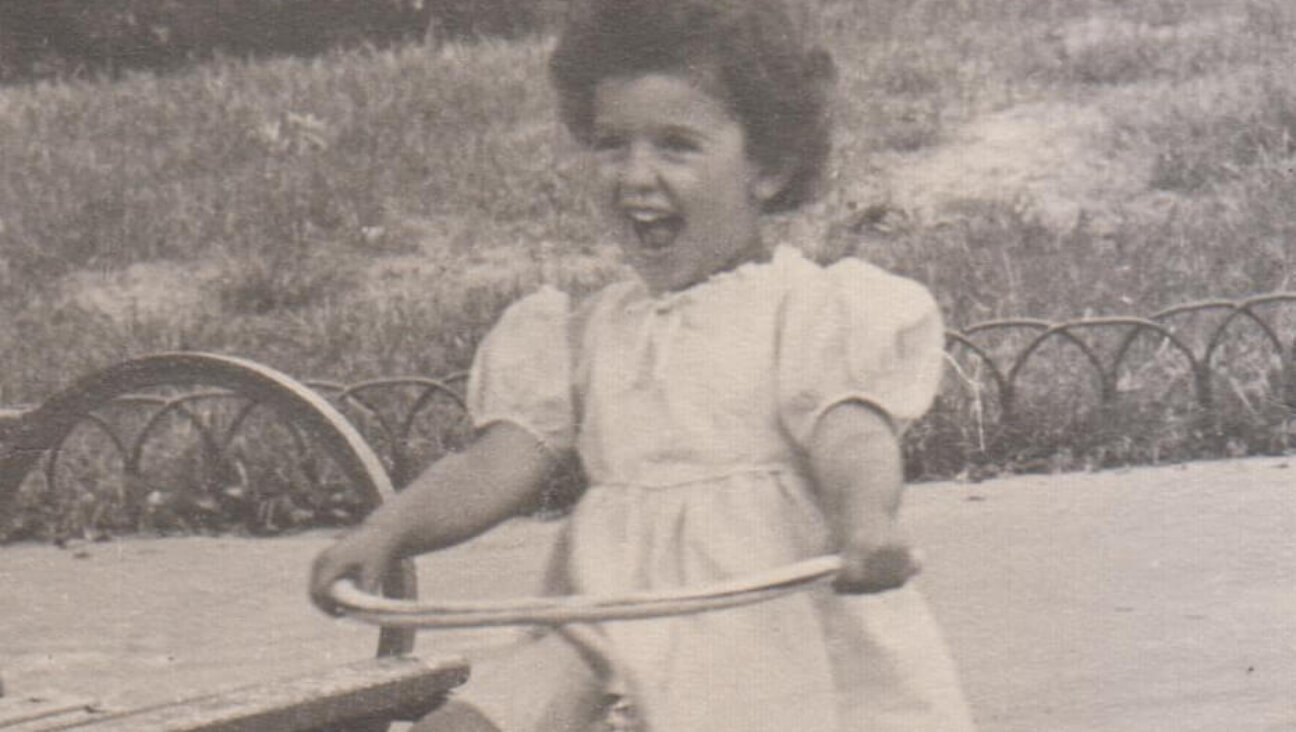How curiosity, intelligence and a supportive mom prepared a Bronx-born Jewish girl to win the Nobel Prize
Economist Claudia Goldin remembers growing up above Macy’s in an apartment without air conditioning
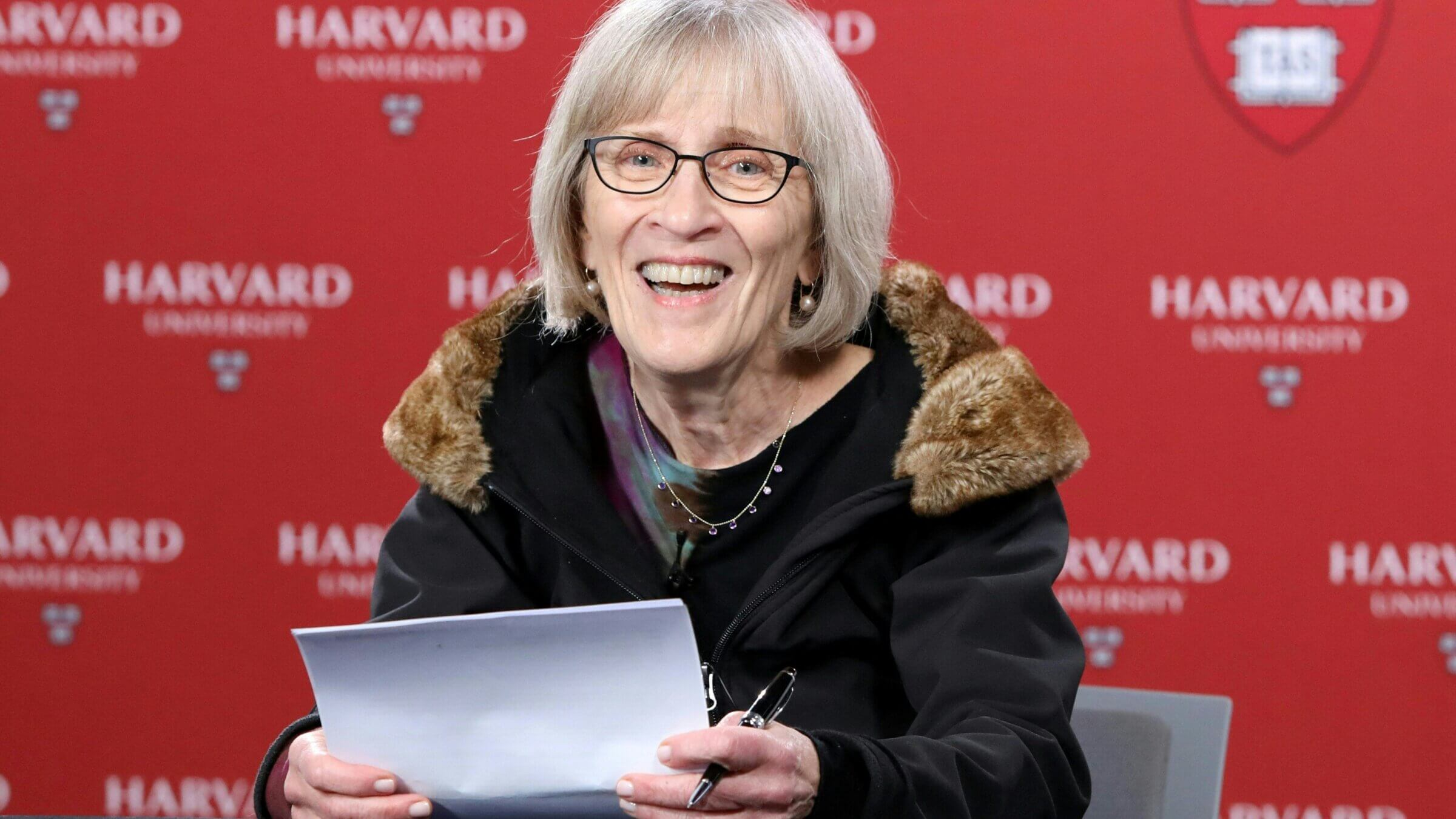
Claudia Goldin at Harvard, Oct. 9, 2023. Photo by Getty Images
Bronx-born Claudia Goldin, winner of the 2023 Nobel Prize for economics, knows exactly what her late mother would say about her winning the most prestigious award in her field.
“She’d say, ‘Oh, I thought you won it years ago,’” Goldin said, laughing, when she talked to me over the phone from her home in Cambridge, Massachusetts. “Then she’d go around to all her friends to brag.”
The Jewish Harvard professor won the 2023 Nobel Prize in economics for her research on gender differences in the labor market. Goldin, an economic historian and labor economist, has provided a comprehensive history of women’s labor participation and earnings, as well as the root causes of the gender pay gap, according to a statement from the Royal Swedish Academy of Sciences. She is the third woman to win the economics Nobel, and the first to win it solely rather than share it.
“It certainly means a tremendous amount,” Goldin told the Nobel Foundation. “It’s an award for big ideas and for long-term change.”
Goldin, 77, compares her economics research to detective work. Since she was a child visiting the American Museum of Natural History in New York, she has been transfixed with solving mysteries. At first, she was determined to become an archeologist and study mummies. Then in junior high school she became fascinated by microbes.
Her intellectual curiosity, she said, was encouraged by her mother, Lucille Goldin, who passed away in 2020 at the age of 100. In an era when most mothers did not work, Lucille was an assistant principal at P.S. 105 in the Bronx.
“My mother certainly had a monumental influence on me,” Goldin told me. “My mother was a highly educated individual. She was the equal — or more — than my father.”
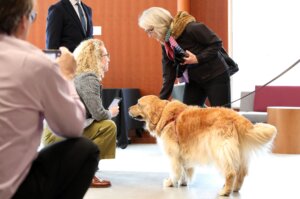
Goldin grew up in an apartment above the Macy’s in Parkchester, a neighborhood in the east Bronx. Without air conditioning at home, the youngest of two remembers escaping the heat by spending her summers in the air conditioned department store’s shoe department.
“I was raised in a family that went to the Orthodox synagogue,” she said. “So we kept kosher,” she explained, before clarifying — “my mother created her own form of kosher. She said, ‘the house is kosher. Our stomachs are not.’”
This meant outside, they could eat non-kosher Chinese food, lobster and bacon, but kept a kosher home, so they could host Goldin’s paternal grandparents.
Her neighborhood, however, was more Catholic than Jewish. “The Catholics outnumbered the Jews and I believed that America was a Catholic nation. And that was fine,” she recalled. “Catholics had really good things. They had stained glass windows, they had organs.”
Christmas, however, gave her an early lesson in inequality. “They had things that were green and red and fun. And we had white and blue and men with beards,” she said. Passover only reinforced her sense of injustice. “They had Easter egg hunts. What do we have? Matzos?”
Unlike other mothers in her community, Lucille did not object to her daughter attending the academically rigorous Bronx High School of Science. Goldin is the ninth Nobel laureate to graduate from the elite public high school. She says she benefited from the education she received, but at a cost. “Bronx Science was a schlep. I took three buses there and three buses back,” she said. “Six Bronx buses every day!”
With her mother’s encouragement, Goldin attended Cornell University, where she initially studied microbiology, but a second-year economics class with Alfred Kahn inspired her to switch majors. After graduating Cornell with a bachelor’s degree in economics, Goldin completed her doctorate at the University of Chicago. In 1972, she defended her dissertation on slavery in the American South. Her graduation and entry into the workforce coincided with the height of the feminist movement.
By the 1980s, Goldin turned her focus to the topic of women in the labor market — a topic she says was mostly ignored by economists and official statistics. “Women were in the data when young and single and often when widowed,” Goldin wrote in a 1998 essay about her career. “But their stories were faintly heard after they married, for they were often not producing goods and services.”
Her research has examined the effect of “the pill” on women’s career choices, women keeping their surnames after marriage, and the gender gap. Her 1990 book Understanding the Gender Gap: An Economic History of American Women offered the first comprehensive economic history of women in the U.S. workforce. That same year, she became the first female professor in Harvard’s economics department to be offered tenure.
To uncover the stories of women workers, Goldin’s research combined clever techniques, like a study of “blind” auditions of musicians for orchestras, and painstaking archival research to piece together economic histories where little data is available. Her husband and Harvard colleague Larry Katz is often a collaborator.
In addition to churning out journal articles, the two economists have a golden retriever, named Pika, who is a prized scent dog and is trained as a therapy dog. On her Harvard website, Goldin dedicates a full page to Pika, posting most recently that he celebrated his “Bark Mitzvah” upon turning 13.
“I looked up in the Jewish calendar, given that he was born July 4, 2010, when his real bar mitzvah would be,” she said. “I actually couldn’t figure it out.”
Goldin continues to teach classes at Harvard and has no intention of slowing down her research on gender inequality. Women today, she said, earn 80 cents for every dollar a man is paid. “Historically, much of the gender gap in earnings could be explained by differences in education and occupational choices,” the Nobel committee said in its statement. “Goldin has shown that the bulk of this earnings difference is now between men and women in the same occupation, and that it largely arises with the birth of the first child.”
Even in her own discipline, the inequality is undeniable. Of the 51 Harvard economics faculty members, only 7 are women.
But on the day she won the Nobel prize, Goldin chose to focus on women’s victories. She published online a working paper about how the women’s movement obtained legal rights in the 1960s and 1970s. The paper’s title was “Why Women Won.”



